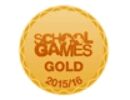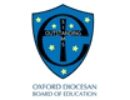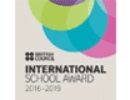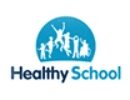Reading
Working together to create fluent, confident and enthusiastic readers.
Our mission at Brill is for children to develop a love of reading, to appreciate and explore a wide range of literature and to ultimately understand the value of being able to read well. This begins with the Early Years reading building blocks, where children start to learn to read through the Bug Club phonics scheme in an immersive, language-rich environment. It continues right through to Year 6 where children independently use (and help to run!) our school library, inspiring and supporting younger readers. Throughout their reading journey, children are explicitly taught how to read through daily Guided Reading sessions, and supported through regular 1:1 and group reading opportunities. Rich and varied texts are used in our Literacy lessons to engage all readers, expose children to ambitious vocabulary, and promote high quality writing opportunities. We offer exciting and unique opportunities to work alongside real life authors through our partnership with Pop Up Literacy. Children are taught to use their reading diaries and targets to help track their own progress. We encourage children and parents to read together at home, every day if possible. Please use the tools on this page to help support your child’s reading progress at home.
If you have any questions or would like to talk about your child’s reading journey, please do contact their Class Teacher in the first instance or email me using the contact details on this page.
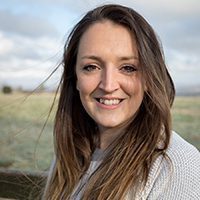
Head of Teaching & Learning, Senior Leadership Team
|
|
Literacy Coordinator
|
Here at Brill we love books! We feel reading is such an important part of education; especially reading for pleasure. We encourage a love of books with our beautiful library and our teachers’ enthusiasm. Our committed library team ensure children are selecting a range of books which both motivate and challenge them.
Bug Club is taught across Key Stage One and is a finely-levelled scheme for the effective teaching of reading. It is used to ensure children access books at exactly the right level for them. This scheme provides the systematic and progressive approach that is needed to secure strong foundations for lifelong reading. A variety of book genres are available to appeal to all readers, as well as our hugely popular e-book system which has encouraged even the most reluctant of readers to engage with their reading.
In reading lessons, the focus is largely on building fluency and confidence in Year R and Year 1. For Years 2-6 we adopt a whole-class Guided Reading approach which aims to promote reading for pleasure, knowledge and fluency.
Class texts are chosen to deepen children's background knowledge and expand their vocabulary by linking to our overarching curriculum topics.
Our inspiring school library, external visitors and Friday afternoon special reading time all serve to nurture a life long love of reading.
At Brill, we follow the Bug Club phonics scheme and use their reading books and online library to support children's reading progression.
This table shows you the Bug Club book band colours and gives you an idea of how children should progress through these throughout their school career. This is only a guide: children progress at varying rates and this is always a very personal journey for each child in our school. Sometimes, it is better to remain on a certain book band for longer whilst they consolidate their comprehension skills, before moving onto trickier texts which they might not fully understand.
Most children move onto library books (Early Reader and then Free Reader) once they have reached the Lime book band.
Please use the document below to find out more about each book band, and how best to support your child at that level.
|
|
Book Bands
|
It is really important to talk about the text with your child, as well as reading it. This can be just as valuable as the actual reading process itself, as it helps to develop children's comprehension skills. Some children can quickly develop their reading fluency and accuracy, but require more support with their understanding of the text.
Below are some ideas for questions, organised by your child's book band level. If you're unsure which level they are on, please ask your child's Class Teacher.
|
|
Questions for Gold and White Books
|
|
|
Questions for Green Books
|
|
|
Questions for KS2 Blue Books
|
|
|
Questions for KS2 Red Books
|
|
|
Questions for Lime Books
|
|
|
questions for Orange and Turquoise Books
|
|
|
Questions for Purple Books
|
|
|
Questions for Yellow and Pale Blue Books
|
Reading Together
|
|
Key stage 1 (Years 1 & 2)
|
Regularly reading with your child at home is vital. Research shows that it's the single most important thing you can do to help your child's education. It's best to read little and often, so try to put aside some time for it every day.
Think of ways to make reading fun - you want your child to learn how pleasurable books can be. If you're both enjoying talking about the content of a particular page, linger over it for as long as you like.
Reading to your child is just as important as listening to them read. If they are tired they can follow the print with a finger and you can read to them instead.
Tips for helping your child to enjoy books:
- Encourage your child to pretend to 'read' a book before he or she can read words.
- Visit the library as often as possible - take out CDs and DVDs as well as books. Explore their audio book section too.
- Schedule a regular time for reading - perhaps when you get home from school or just before bed.
- Look for books on topics that you know your child is interested in - maybe dragons, insects, cookery or a certain sport.
- Make sure that children’s books are easily accessible in different rooms around your house.
Helpful website:
|
|
http://www.topmarks.co.uk/Parents/ten-tips-on-hearing-your-child-read
|
|
|
Key stage 2 (Years 3 - 6)
|
Parental engagement with learning and support for their child is one of the most significant factors in a child’s development and levels of attainment. As a parent you have tremendous power to strengthen your child’s confidence, which is vital to learning.
How can I help with reading?
- Give cards to accompany reading books where words not known can be recorded and investigated.
- Read yourself. Set a good example by reading for pleasure and talking about the reading you do at work and home.
- It is great to encourage independent reading; older children still enjoy being read to, both at bed times and at other times during the day.
- Your child does not have to read books alone; newspapers, magazines, comics, TV guides, cookery books and the internet are great too.
- Discuss reading with your child; ask them if there was anything interesting in what they’ve read recently.
- Ask lots of questions about the story. What would you have done if you were…….? Does this book remind you of any thing that has happened to you? Can you guess what is going to happen next? See more guidance on this page for different styles of questioning.
- Visit your local library – it’s free to join. As well as taking out story books, use visits to the library as a time to find books, CDs, DVDs about your child’s hobbies and interests.
- Encourage your child to read to younger family members and friends.
- Keep in touch with school. Make sure your child swaps their home reading books regularly at school and try to make a regular time slot to hear them read. Record your comments in their reading diary (if applicable) for the class teacher to see.
- Make sure your child has a dictionary to check the meanings of new words they encounter in their reading.
Pop Up Literacy Partnership
|
|
https://pop-up.org.uk/
|
Bug Club information
|
|
https://www.pearsonschoolsandfecolleges.co.uk/primary/subjects/english-literacy/bug-club
|
|
|
https://www.youtube.com/watch?v=R_91DamY8Gk
|
How to Pronounce Pure Sounds in Phonics
|
|
https://www.youtube.com/watch?v=UCI2mu7URBc
|
